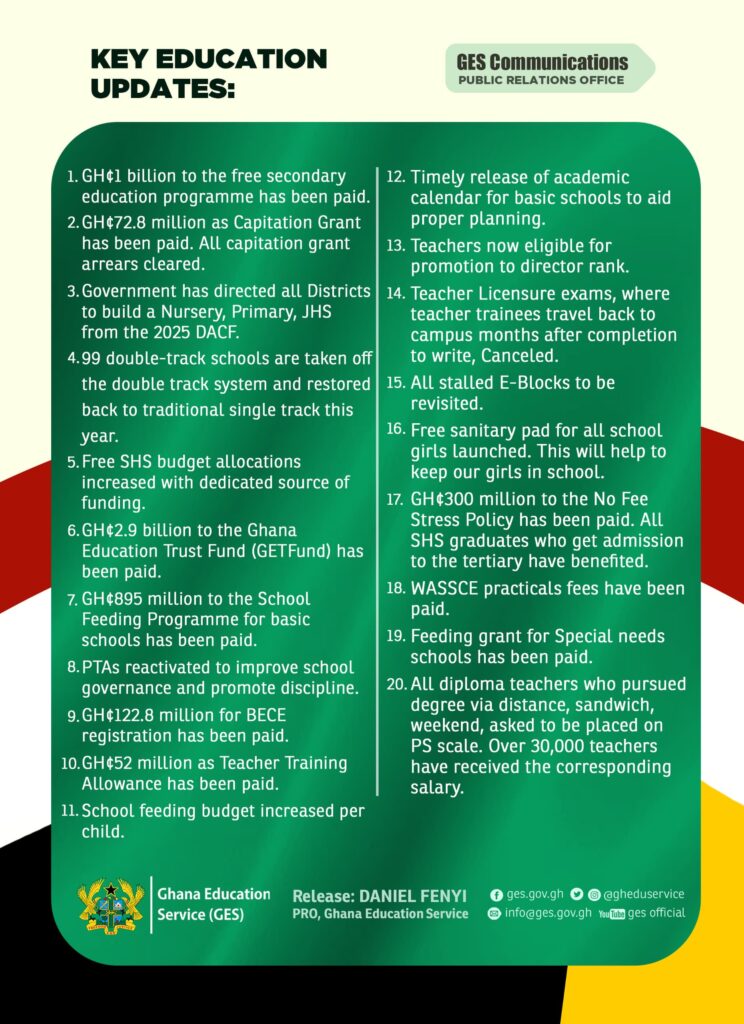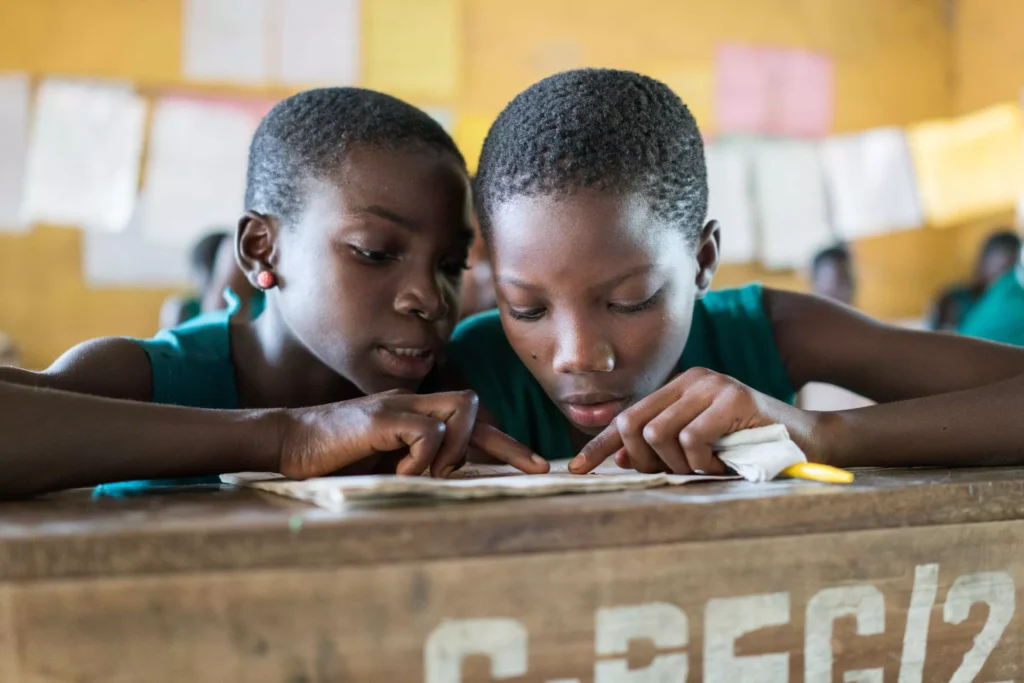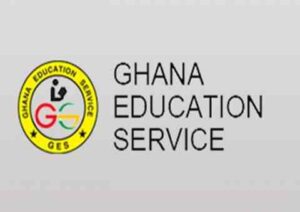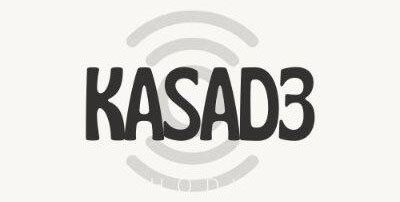Ghana Education Service -Beyond The Billions
Accra, Ghana – The Ghana Education Service (GES) has released a major update on the education sector.
The Service also announced significant financial commitments. While the billions of cedis in allocations draw attention, critics are raising questions. They ask how these promises will affect classrooms across the country.
The Numbers Behind the Announcement
The Ministry of Education stated these allocations:
It confirmed GH¢122.8 million for BECE registration. It also confirmed GH¢52 million for Teacher Training Allowances. Furthermore, it confirmed support for WASSCE practicals and special needs schools.

Although these figures were highlighted as evidence of investment, it has been acknowledged that the true measure of success will depend on whether the funds reach schools without delay and are felt by students and teachers.
Ghana Education Service, What Education Updates Mean In the Classroom: A Student’s Perspective
Many students interpret the update in practical terms. In rural areas, girls welcome the free sanitary pads. They see it as a step toward reducing absenteeism. Meanwhile, SHS students in crowded dormitories focus on a key question. They want to know if the Free SHS allocation will ease congestion. They also hope it improves their food supply.

It has been noted by observers that while billions have been earmarked, what will matter to learners is whether classrooms become less congested and resources more accessible.
Teachers at the Heart of Reform – Ghana Education Service
Teachers have been identified as central beneficiaries of the reforms. The cancellation of travel exams is a relief for teachers. Additionally, new promotion opportunities recognize their service. Nevertheless, deeper issues remain a concern. For instance, inadequate teaching materials persist. Also, high pupil-to-teacher ratios are a problem. Ultimately, resources must reach the classrooms. Otherwise, morale may stay low despite reforms.
Parents and Communities: Silent Stakeholders
The update also draws attention to reactivating Parent-Teacher Associations (PTAs). Officials expect PTAs to restore parental involvement in education governance. Many communities regard these associations as key channels. Through them, parents demand accountability and raise concerns.
Stakeholders have pointed out that the success of these reforms will not only depend on funding but also on community participation.
Beyond Announcements: The Real Test Ahead

The government has released the funds. However, analysts caution that the implementation stage will serve as the true test. Specifically, can the government complete the stalled E-Block projects? Furthermore, can officials prevent leaks in the fund disbursement? Most importantly, will leaders ensure long-term sustainability? In fact, politicians often treat education policy as a battleground. Consequently, they do not always fully deliver on their promises.
Conclusion
The Ghana Education Service presents this update as a progress report. However, many also see it as a statement of intent. Ultimately, action determines the worth of these commitments. For instance, schools must improve learning conditions. Additionally, officials need to motivate teachers. Furthermore, the system must provide equal opportunities for all students. Until then, the announced billions remain promises waiting for realization.



